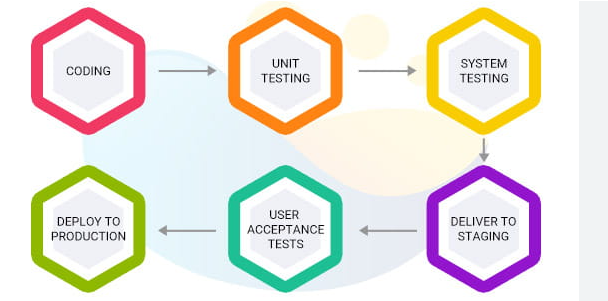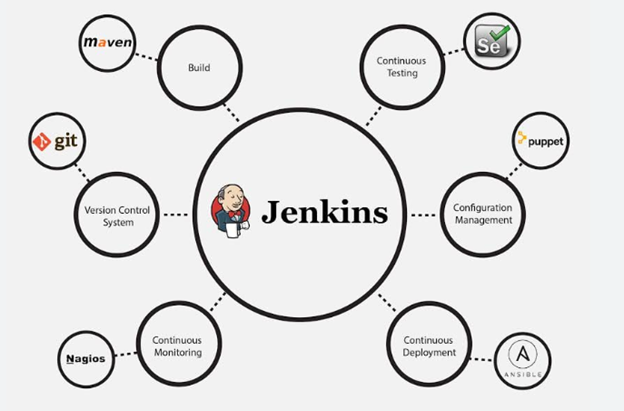Home /
What is Jenkins? Use of Jenkins in Automation Testing.
What is Jenkins? Use of Jenkins in Automation Testing.
What is Jenkins?
The open-source automation server is called Jenkins. It helps testers and developers to manage many phases of the SDLC, such as application development, testing, and release. It is quite popular because of its robust plugin ecosystem, community, and flexibility.

Features of Jenkins:
- Extensive Plugin Support
- Cross-Platform
- Seamless Integration
- Pipeline as Code
Jenkins in Automation Testing
- Continuous Testing:
After every commit, Jenkins automatically starts test suites. This ensures that each new change is tested immediately, thereby allowing teams to find flaws early. - Test Environment Setup:
Jenkins can power up clean environments to run tests using tools; it will reduce the necessity for human interference and time, and decrease inconsistencies in tests. - Integrated Testing Tools:
- Selenium (for web UI testing)
- JUnit/TestNG (for unit testing in Java)
- Cucumber (for BDD testing)
- Appium (for mobile testing)
- Automated Test Reporting: Jenkins may generate comprehensive results during testing with plugins such as HTML Publisher, JUnit, or Allure. Real-time feedback on outcomes of tests is available to developers and testers. Thus, it will be simple for developers and testers.
- Parallel and Distributed Testing: Jenkins can execute tests in parallel across multiple devices or settings via multiple devices or nodes, which greatly speeds up the feedback loop.
Conclusion:
Jenkins is essential for enabling test automation in the SDLC, and it is more than just a continuous integration solution. Jenkins helps you automate, speed up, and improve the dependability of your testing process, whether you’re developing a small project or implementing a large project.

